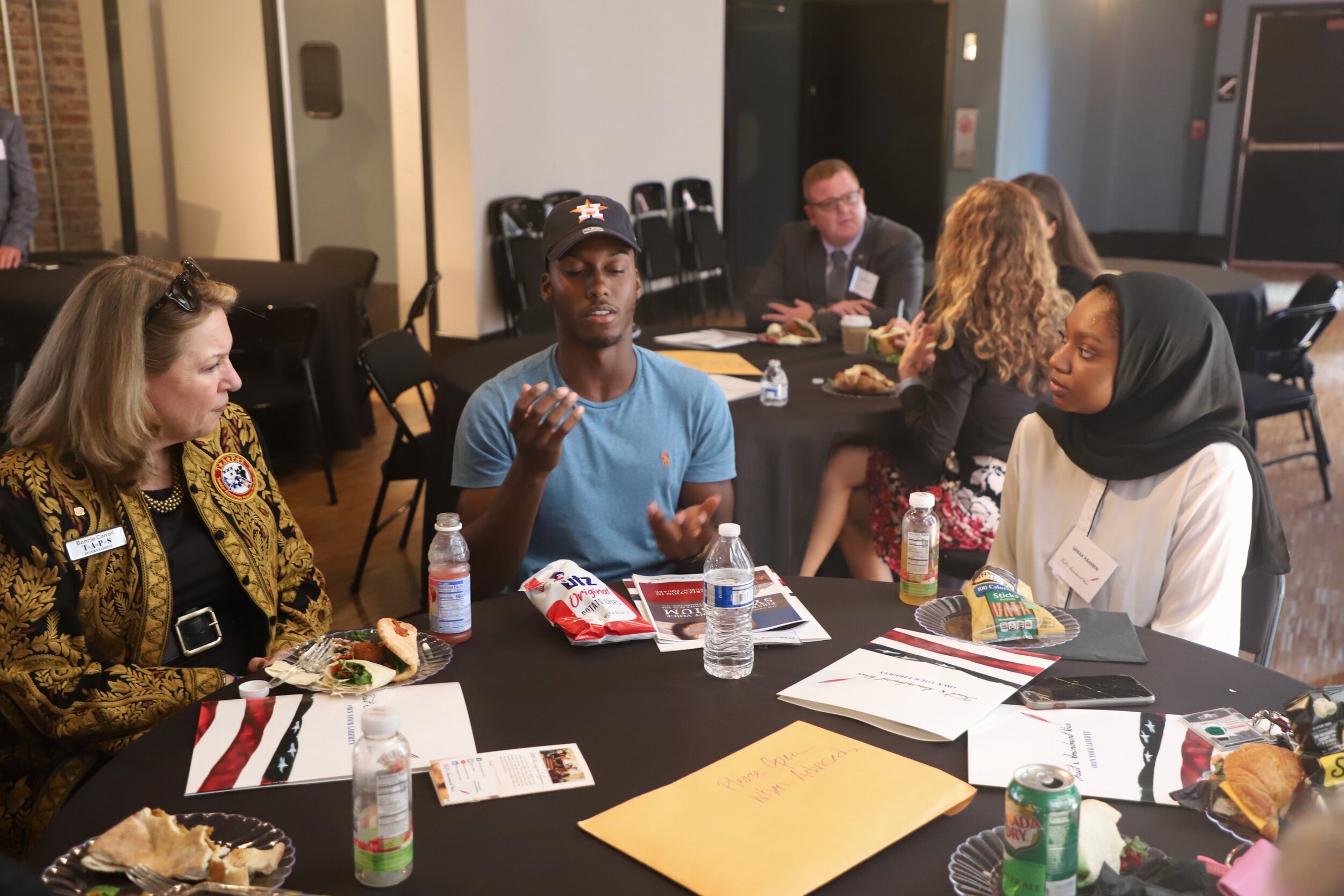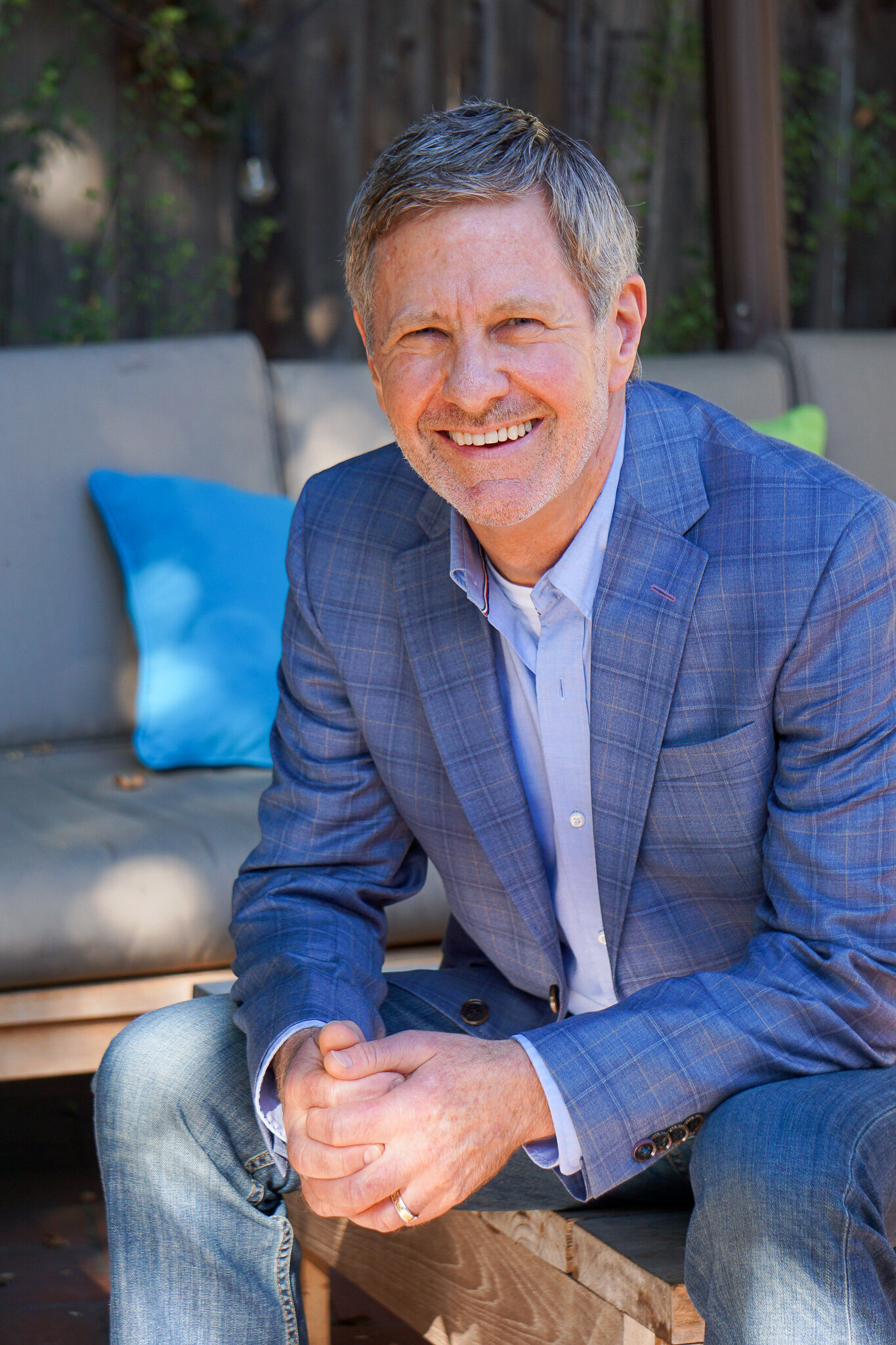
Heart and Mind: The two dimensions of communication
In her TED talk, "I grew up in the Westboro Baptist Church. Here's why I left," Megan Phelps-Roper offers four conditions that, when met, enable us to have constructive conversations with "the other." Her first three conditions are examples of the heart dimension of communication, and her last is an example of the mind dimension.
The 3:1 ratio is important. Too often we short-change the heart dimension, creating a relationship that lacks the connection, trust and resilience necessary for engaging in a difficult conversation.
The following fleshes out the heart and mind dimensions in a little more detail.
In her TED talk, "I grew up in the Westboro Baptist Church. Here's why I left," Megan Phelps-Roper offers four conditions that, when met, enable us to have constructive conversations with "the other." Her four conditions are 1) assume positive intent; 2) ask questions; 3) stay calm; and 4) make the argument.
The first three conditions are examples of what I call the heart dimension of communication, and the last is an example of the mind dimension. Note the 3:1 ratio. Too often we short-change the heart dimension, creating a relationship that lacks the connection, trust and resilience necessary for engaging in a difficult conversation.
The following fleshes out the heart and mind dimensions in a little more detail.
The Mind: The mind is the mental dimension. It’s the home of concepts, comparisons, and judgments. It’s where things are turned over, taken apart, held under a light and cross-examined. It’s the dimension of right and wrong, good and bad, liberal and conservative, rights and privileges, individualism and collectivism, acceptance and rejection, and every other “opposite” you can think of. It’s where we take stands, draw lines and, if necessary, defend and fight. The mind dimension currently dominates our national discourse.
The Heart: The heart is the foundation of dialogue, prioritizing relationship over ideologies and positions. Rather than drawing lines, it draws circles—encompassing everyone simply on the basis of our common humanity. Rather than preparing to defend and fight, it prepares to connect and accept. Beyond all else, the heart operates from the foundation of unity. Nothing is allowed to disconnect the common thread that binds us as human beings. In this way, the heart creates the safe space for true and open dialogue to occur.
Heart/Mind Teamwork: When a dialogue becomes a conflict, it’s an indication of a heart/mind disconnect. Partners become enemies; another becomes “an other.” We cease to see our common humanity and we lose the ability to be empathic, to deeply listen, and to see clearly. When this occurs, it’s important to stop, take a breath, and consciously choose to reconnect at the heart level: to set aside our agenda and reaffirm that we prioritize our relationship over being right.
If that seems counterintuitive or counter-productive, it may be because we’ve been trained to ‘stick to our guns’ and to ‘win’ at whatever cost. But if we look at the world today, we can see our desire to “win” is only producing losers.
Successful dialogue—the prerequisite to clear perception, cooperation and collaboration—requires both heart and mind communication. If we fail to prioritize our relationships over our positions (heart), or fail to understand the true nature of our challenges (mind), we’ll be unable to secure the future we most want for ourselves and our children.
The ground beneath "common ground"
"I just prayed that the workshop would give me some tools to manage whatever interactions might transpire with this guy."
That's what Amy thought as she unintentionally sat down next to a Trump supporter at a recent Difficult Conversations workshop. Over the course of the day she made a critical discovery: What we typically think of as common ground —shared opinions, attitudes and beliefs — is in reality a false floor.
“ “I just prayed that the workshop would give me some tools to manage whatever interactions might transpire with this guy.””
We all know people who think so differently from us it seems there’s not a slice of common ground to stand on. Talking with them can be frustrating, painful, disappointing and, sometimes, blood boiling. And at the end, we’re often left feeling the world just got a little worse rather than a little better.
It doesn’t have to be this way. Not if we understand that what we typically think of as common ground —shared opinions, attitudes and beliefs — is in reality a false floor. Beneath it is something far more stable and encompassing: The common ground of universal and deeply felt human experience.
Amy, a recent participant in a "Difficult Conversations" workshop, gives us an example:
"When an older gentlemen with a ‘Trump Tower' notebook sat down next to me at the training, I took a deep breath and just prayed that the workshop would give me some tools to manage whatever interactions might transpire with this guy.
"Later, he ended up being my partner for the ‘life story’ sharing exercise, and we developed quite a connection.
"I'm married to a combat veteran, and that has flavored my life (good, bad and ugly) for the past 12 years. It turned out that the man with the Trump Tower notebook was a Vietnam veteran who has dealt with many of the same struggles and was able to empathize in a way that only a veteran or family member can, and offer the benefit of wisdom that only comes with age.
"So, this was quite a slap in the face for me to realize the value of letting go of our snap judgments. Had I not been forced to do so, I never would have pursued a conversation or developed a connection with this man."
Amy was fortunate to be in an environment that created a space for her to neutralize her snap judgment and break through the false floor that separated her from another. From that new place she was able to connect around something that mattered to her far more than how someone voted: finding comfort and wisdom to help her meet the challenges of a deep source of suffering in her life.
A difficult conversation in California's conservative heartland
Recently I had the opportunity to facilitate my workshop, “Difficult Conversations: The art and science of thinking together,” with the community leaders of Redding, California — the state's tenth most conservative large city, according to voter registration figures.
Recently I had the opportunity to facilitate my workshop, “Difficult Conversations: The art and science of thinking together,” with the community leaders of Redding, California — the state's tenth most conservative large city, according to voter registration figures.
Sponsored by the city's Chamber of Commerce, The McConnell Foundation and Euphrates.org, the workshop brought more than 80 prominent government, business, non-profit and religious community leaders together — including city council members, the past and future mayor, the chair of the County Board of Supervisors, the county sheriff, and more.
Redding’s interest in the workshop was driven by necessity. Like many communities Redding is facing serious challenges, from rising crime and homelessness to a growing opioid epidemic. But as a recent editorial in the city's major newspaper pointed out, their biggest challenge is coming together to find solutions in a political and civic environment plagued by poor communication and lack of trust.
Redding needed a reset — something that would help them repair relationships and find common ground. City leaders thought my workshop might help, and the feedback indicates it did. More tellingly, they've asked me to return in February to lead the workshop again for those unable to attend the first one.
But perhaps my favorite indicator of success is an anecdote about two of the attendees: one was a city councilwoman facing a recall effort, and the other was a man leading that effort. Both stayed for the entire workshop.
Days later I asked what became of the recall, and learned it fizzled after failing to get the requisite number of signatures. Then I read an op-ed by the man behind the effort, reflecting on his experience.
In it he wrote that it was time for the community “to abandon its focus on the differences and begin to address the distrust of each other as we instead focus on common goals,” and to “come together, to break the bubbles we have existed in and the echo chambers that have given us feedback that has been flawed and one-sided."
The workshop in a nutshell.
Five essential steps for having a difficult conversation
In an article for the Wall Street Journal titled “The right way to have difficult conversations,” author and podcast host Celeste Headlee offers five main pieces of advice. The last one, in my experience, is the most essential.
“These days, it seems that there are more and more deal breakers when it comes to deciding whom we’re willing to talk to. But in our tense era of deep divisions, talking to each other—and having difficult conversations—is more important than ever before.”
So begins an essay in the Wall Street Journal by Celeste Headlee, a journalist, radio talk show host and author of “We Need to Talk.”
Her article—“The right way to have difficult conversations”—outlines much of what we explore in depth in my free workshop. Below are her five main pieces of advice. The last one is, in my experience, the most essential.
Be curious: “Have a genuine willingness to learn something from someone else—even someone with whom you vehemently disagree.”
Listen to understand: “Resist the impulse to constantly decide whether you agree with what someone else is saying. The purpose of listening is to understand, not to determine whether someone else is right or wrong, an ally or an opponent.”
Be respectful: “Show respect at all times. View the other person as a human being and put yourself in their shoes. Empathize.”
Stick with it: “If you’re talking to someone and a taboo subject comes up—whether it’s death, divorce or race—don’t try to change the subject, make a joke or go off on a tangent. Talking through tough issues can be awkward and painful, but try to avoid getting frustrated and walking away.”
End well: “My final piece of advice really applies to all conversations, but it is especially true of difficult ones: End well. You don’t need to have the last word. Take a moment to thank the participants for sharing their thoughts. It can be scary to talk about politics or religion with someone else, so express your gratitude for their time and their openness. If you end the conversation in a friendly and gracious way, you set the groundwork and tone for future conversations.”
Great advice, and none of it’s easy. If it was, we’d all be good at it and the world would be a better place. So if you’d like some tools and processes that can really help, request a free Difficult Conversations workshop.
Subscribe to my free monthly newsletter and learn in under 5 minutes what makes difficult conversations so difficult.
Once a month I send out a newsletter that can help you approach difficult conversations in a radically new way — one that can heal divides, strengthen relationships and foster collaboration. Sign up, and I’ll send you a video that explains in under 5 minutes what makes difficult conversations so difficult.
Hi, my name is Kern Beare. Through my book and workshop, I’ve helped thousands of people approach difficult conversations in a radically new way — one that can heal divides and change hearts and minds. You can learn more about me here.
My book, Difficult Conversations: The Art and Science of Working Together, is now available.


